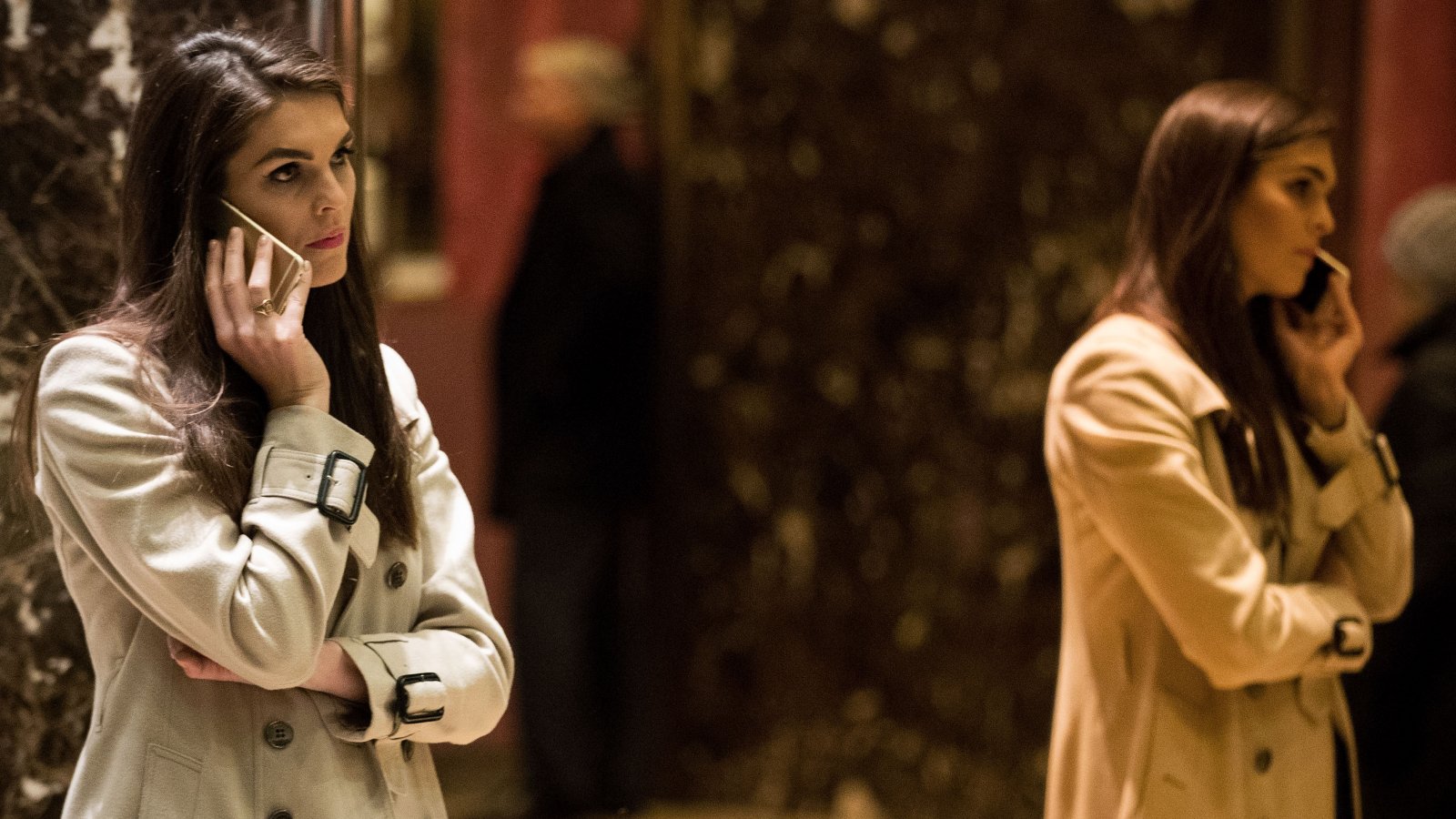
The New York Times reports Special Counsel Robert Mueller is preparing to interview former Trump legal team spokesman Mark Corallo who resigned in July, reportedly over concerns he could be exposed to obstruction of justice.
Mr. Corallo received an interview request last week from the special counsel and has agreed to the interview, according to three people with knowledge of the request.
Corallo's testimony is expected to pull White House Communications Director Hope Hicks into the spotlight.
Mr. Corallo is planning to tell Mr. Mueller about a previously undisclosed conference call with Mr. Trump and Hope Hicks, the White House communications director, according to the three people. Mr. Corallo planned to tell investigators that Ms. Hicks said during the call that emails written by Donald Trump Jr. before the Trump Tower meeting — in which the younger Mr. Trump said he was eager to receive political dirt about Mrs. Clinton from the Russians — “will never get out.” That left Mr. Corallo with concerns that Ms. Hicks could be contemplating obstructing justice, the people said.
Hicks' lawyer denies the allegations.
“She never said that. And the idea that Hope Hicks ever suggested that emails or other documents would be concealed or destroyed is completely false.”
But the Times says Corallo told three people what happened at the time it took place.
In Mr. Corallo’s account — which he provided contemporaneously to three colleagues who later gave it to The Times — he told both Mr. Trump and Ms. Hicks that the statement drafted aboard Air Force One would backfire because documents would eventually surface showing that the meeting had been set up for the Trump campaign to get political dirt about Mrs. Clinton from the Russians.
According to his account, Ms. Hicks responded that the emails “will never get out” because only a few people had access to them. Mr. Corallo, who worked as a Justice Department spokesman during the George W. Bush administration, told colleagues he was alarmed not only by what Ms. Hicks had said — either she was being naïve or was suggesting that the emails could be withheld from investigators — but also that she had said it in front of the president without a lawyer on the phone and that the conversation could not be protected by attorney-client privilege.
(...)
Mr. Corallo told colleagues that he immediately notified the legal team of the conversation and jotted down notes to memorialize it. He also shared his concerns with Stephen K. Bannon, then the president’s chief strategist.
Mr. Corallo left the job shortly after the phone call.
News of the June 9, 2016 Trump Tower meeting during which Donald Trump Jr., Jared Kushner, and Paul Manafort met with Russian lawyer Natalia Veselnitskaya and others did not emerge until a year after it took place. How President Trump and his administration responded to that breaking news is of particular interest to Mueller's team.
The revelation of the meeting was striking: It placed the president’s son and his top campaign officials in direct contact with a Russian lawyer who promised damaging information on Mrs. Clinton, and an email to the president’s son emerged saying that the information was part of Russia’s effort to help the Trump campaign. The special counsel is investigating how those revelations were handled in real time in part because the president was involved in his administration’s response.
(...)
What is already clear is that, as Mr. Trump’s aides and family members tried over 48 hours to manage one of most consequential crises of the young administration, the situation quickly degenerated into something of a circular firing squad. They protected their own interests, shifted blame and potentially left themselves — and the president — legally vulnerable.
The Times offers more color on the drafting of Donald Trump Jr.'s initial statement.
The president supervised the writing of the statement, according to three people familiar with the episode, with input from other White House aides. A fierce debate erupted over how much information the news release should include. Mr. Trump was insistent about including language that the meeting was about Russian adoptions, according to two people with knowledge of the discussion.
By early afternoon, The Times received a separate statement, from Jamie S. Gorelick, a lawyer at the time for Jared Kushner, the president’s son-in-law and senior adviser. The statement said little about the meeting, except that Mr. Kushner had “briefly attended at the request of his brother-in-law Donald Trump Jr.”
It left nearly all of the questions unanswered — and seemed to put the onus on Donald Trump Jr. to answer them. Nearly four hours later, the statement that had been cobbled together aboard Air Force One was sent to The Times. The statement was in Donald Trump Jr.’s name and was issued by Mr. Garten.
“It was a short introductory meeting,” it read. “I asked Jared and Paul to stop by. We primarily discussed a program about the adoption of Russian children that was active and popular with American families years ago and was since ended by the Russian government, but it was not a campaign issue at that time and there was no follow up.”
According to four people familiar with the discussions, Donald Trump Jr. had insisted that the word “primarily” be included in the statement.
Full story: Mueller Zooms In on Trump Tower Cover Story (NYT)